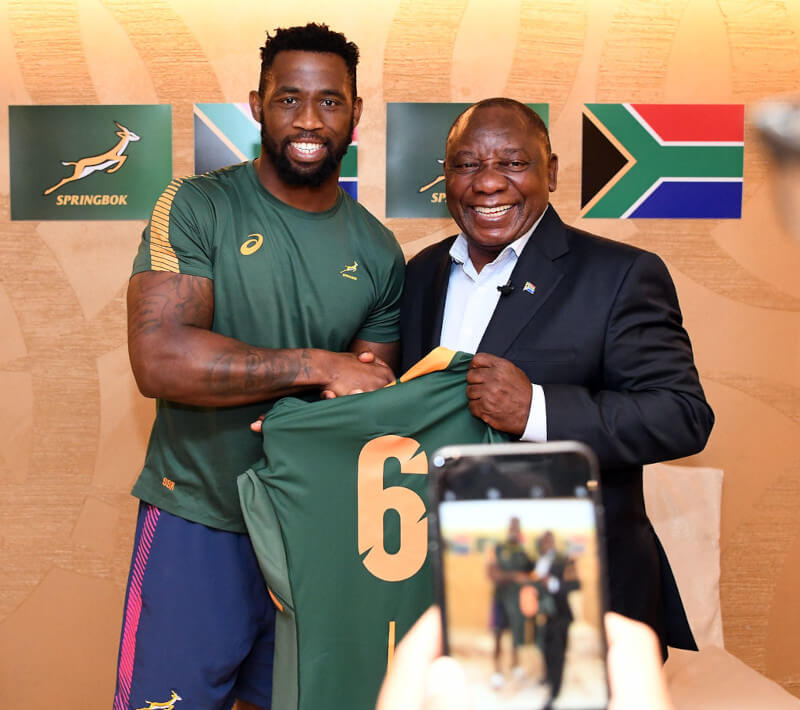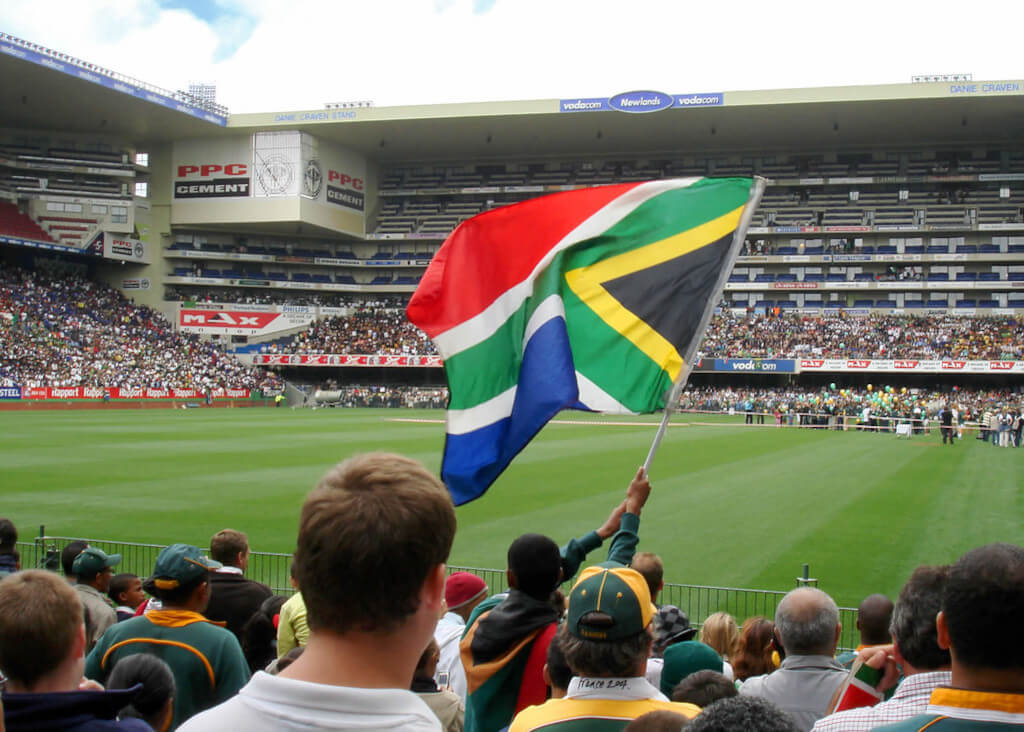All South Africans were given reason to believe that Yes! was the answer as the Springboks made their way through the final phases of the World Cup and turned the seemingly impossible into a reality. If we put in the effort to collaborate, we have the potential to defy all odds and bring about a miracle in any and every aspect of life. But I was wondering if they sold any shirts.
Now there is reason to have hope. It was an honor for the Springboks to have played to grant hope to the people of South Africa, as Springboks coach Rassie Erasmus stated. They actually did it.
The Springbok team demonstrated that #StrongerTogether is actually effective… for everyone, defying the predictions of all the bookies, skeptical commentators, and even customers who were initially reluctant to show their support by purchasing fan shirts and replicas. From the unsheltered to the affluent, as Captain Kolisi so elegantly stated it earlier on,
Did They Fulfill Their Obligations to the Retailers?
Certainly not at first. Even in the week immediately prior to the championship game, numerous merchants started offering price reductions on replica and supporter shirts due to their concern that they would be stuck with unsold inventory.
However, as the ‘Bokke made their way further into the competition, fans began to believe in them. They demonstrated this belief by buying supporter shirts for the Rugby World Cup (RWC) as a way to commemorate what would turn out to be an important event.
Retail stores who participated in our survey regarding sales of RWC shirts reported that sales began to pick up after the group stages, continued to increase as the ‘Bokke unfolded, grew significantly after the semi-final, and attained climax in the days leading up to the final. The majority of respondents who reacted after the conclusion checked the box indicating that the event had sold out.
After the tournament was over, some retail stores noted that fans were searching for Springbok t – shirt as a memento, and many of them were holding out hope for the shipment of their memorable World Cup Champions t-shirts well before end of the seven-day championship tours. The championship tours were described as being absolutely joyful and wonderfully uniting.
The public display of support was both heartwarming and proud-making, but the pictures also showed that the majority of the individuals who lined the streets were wearing old Springbok or Sevens jerseys. This was revealed by the fact that the majority of the people lining the streets wore these jerseys. Although it was obvious that the fans’ hearts were filled with green and gold, their wallets told them to make use of what they had. The 2007 victory tour was not marked by the desperate search for supporters’ jerseys that had become synonymous with previous tours.
There is no question that the state of the economy and the resulting lack of purchasing power among consumers was a significant factor that worked against shirt sales, particularly in the earlier phases of the tournament.
This is the reason why so many different retailers lowered the prices of shirts. Independent retailers who responded to our survey stated that they primarily discounted replica wear because they believed it to be too pricey for their clients. This was in contrast to the larger chains and online stores, which offered discounts on supporters’ shirts.
An unnamed retail chain disclosed that one of the explanations for markdowns was to be able to keep up with the low prices of counterfeit goods, which is an interesting development.
Retailers revealed that there will be a need for for ‘Bok endorser wear throughout the year, particularly now that they have been crowned champions. Retailers reported that they are not terribly worried that they will be left with World Cup stock; rather, they plan to keep it on their shelves because there will be a demand for it. One third of those who were surveyed stated that they would include it as part of their Black Friday offers in the anticipation that doing so would attract customers to their stores.
In the week leading up to the championship game, we were all given reason to have faith and a revived belief that the can-do spirit that exists in South Africa has the potential to confound all of the pundits and achieve the impossible. In light of this incredible accomplishment, a significant improvement in the economy and the retail sector does not appear to be such an impossible goal.
When a young person from a community that no one has heard of transforms into the first Springbok to achieve a try in the World Cup, anything and everything becomes possible. This youngster grew up in such abject poverty that he frequently went without food and was forced to walk 10 kilometers to school. Even if Makazole Mapimpi himself didn’t actually believe his fellow students when they told him he is destined to succeed in the sport of rugby, those classmates were right.
The unthinkable becomes a reality when a young boy who had to sleep on the ground and frequently went hungry in order to win a rugby scholarship to Grey High School in Port Elizabeth emerges as the first black Springbok captain to lead a team to glory in the World Cup.
Even though it was a monumental achievement for Siya Kolisi to win the IRB World Cup, the significance of him hoisting the Webb Ellis Cup goes so much further than that.
There are a lot of parallels to the year 1995, when President Nelson Mandela brought together a politically divided nation in the spirit of celebration by presenting the trophy to captain Francois Pienaar while both of them were wearing the number six jersey. Those who had been predicting that South Africa was on the verge of a civil conflict at best or genocide at worst were finally silenced by this development.

The significance of President Cyril Ramaphosa enduring a beer soaking alongside the victorious players on the team while wearing a #6 shirt really hasn’t gone undetected. He was seen beaming broadly throughout the ordeal. Once again, our nation is perilously close to falling off a cliff; this time it is the massive financial hole dug by the former administration, which, just like in 1995, is also proceeding their combat efforts. Many people had begun to lose faith that we would be able to halt the decline, but now we are being reassured that Yes, we can do it!
The manner in which captain Kolisi attempted to persuade coach Erasmus to come alongside him to embrace the trophy is yet another signifier of the team cohesion and sense of community that carried the team to victory and earned Erasmus the title of Coach of the Year. Both of these qualities contributed to the success of the team, which earned Erasmus the title. They spent 19 weeks working together as teammates and thoroughly enjoyed each other’s company.
Because of how little impact race had on the dynamics of the team, Erasmus freely admits that he was completely unaware of the importance of a black Springbok captain until a significant portion of the competition had passed. Eben Etzebeth, who had previously served as captain of the Springboks, is reported to have said Is it possible to say that one loves another man? That guy has my undying love! when he found out that his close friend Siya had been chosen to captain the Springboks the previous year. Ever since they were both 18 years old, Kolisi and Etzebeth have been the best of friends.
After a successful try, it was common to see players from the Springboks celebrating by high-fiving and kissing each other on the head, regardless of their skin color.
This feeling that we are all in this together probably explains why there was such a large public outcry to the announcement that Totalsports had omitted the life-size posters of Eben Etzebeth from their shops in the week leading up to the RWC final, stating that they did so because “the mainstream press controversies surrounding Eben Etzebeth has been felt in our stores.”
Within a matter of days, the #TotalsportsMustFall petition had collected more than 12, 500 signatures, and the Twitter pushback led to a significant results of more than 2,000 comments and shares criticizing the move as a PR disaster, particularly days before the final. The number of supporting messages was extremely low, and the majority of the 736 likes were given to comments that either demanded a boycott of stores or were critical of the retail chain in general.
None of the retail outlets who responded to our RWC sales survey believe that the controversy surrounding Eben Etzebeth was a factor in the initial lackluster sales of Springbok t – shirt at their respective stores.




